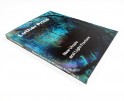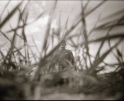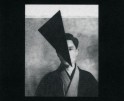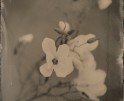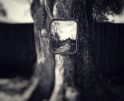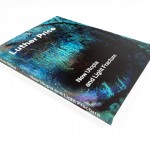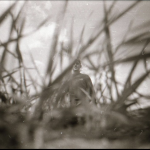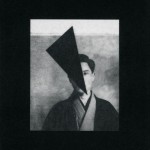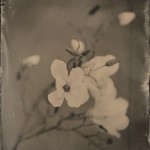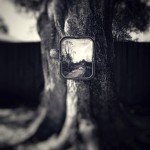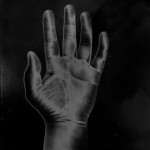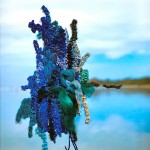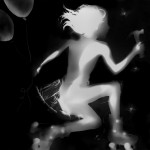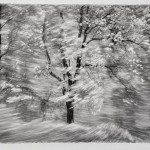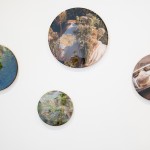Spirit: Focus on Indigenous Art, Artists, and Issues: Kali Spitzer & Bubzee
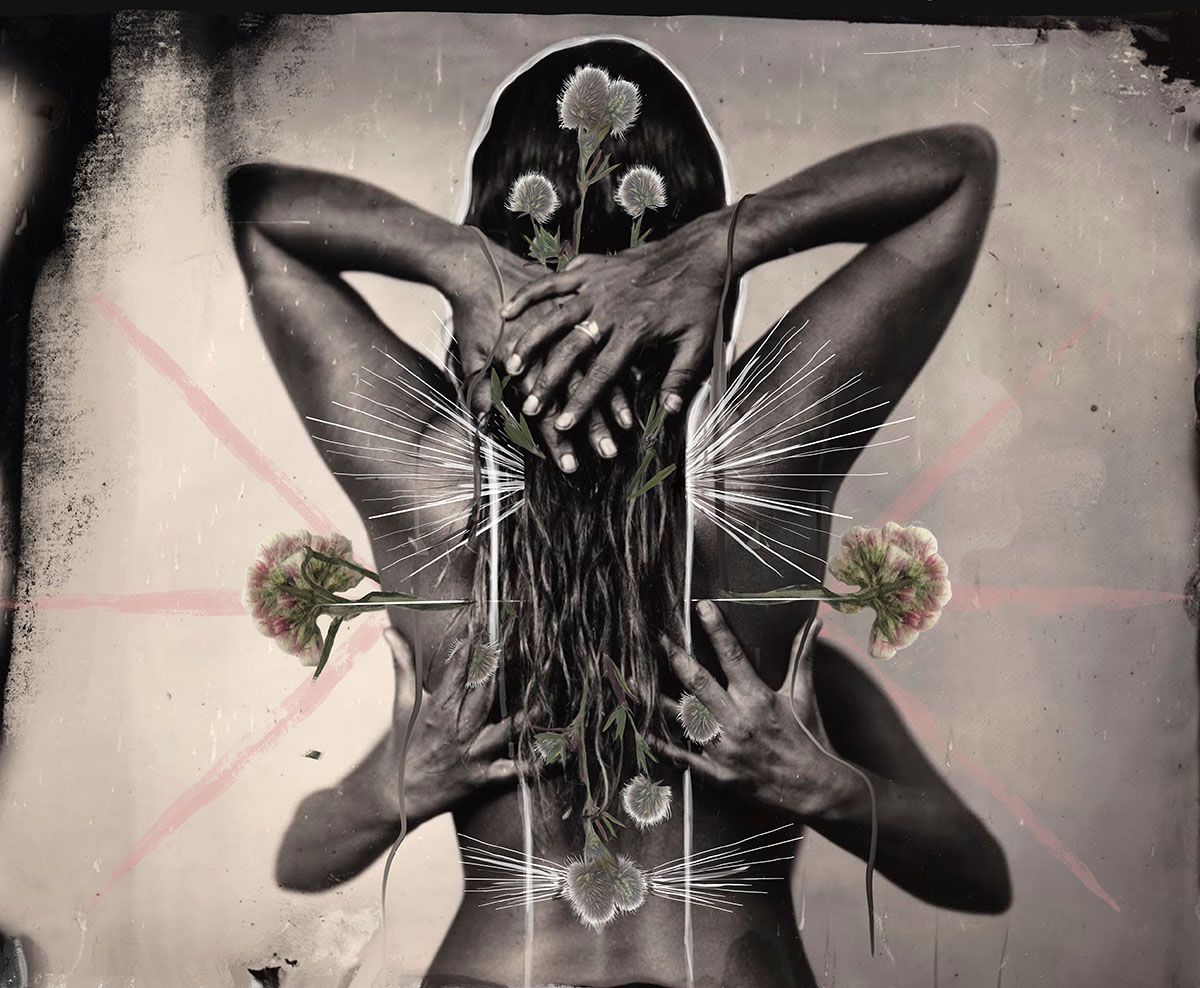
Release, 2020, Scan of 8×10 Tintype, Collaborative Self Portrait, Digital Drawing, Digital Images of Pressed Flowers, © Kali Spitzer & Bubzee
Body as site
carrying blood memory forward.
Interrupted by colonial acts.
Relationships revive
Weaving together the strength of ancestors.
Through generative collaboration, Kali Spitzer (Jewish and Kaska Dena) and Bubzee (European settler) hold space for one another braiding their ancestral connections to heal colonial wounds. Created on the unceded lands of Musqueam, Skwxwú7mesh, Tsleil-Waututh, Sinixt and Mi’kmaq Nation, Braiding Wounds is a series of Tintype images with digital drawings that speak to the restorative labor of caring, deep listening, witnessing, and remembering.
Over the past 15 years, Kali and Bubzee’s kinship grew over their love for art and its capacity to create space for resurgences. Created in the last couple of years, this is a first of a series of collaborations that reveal points of connectivity between them, the continuums of their ancestral strength, and the land towards a deep love and kinship that holds space for one another. Where sites of colonial trauma shift into restorative acts of caring, witnessing and decolonial love.
“Indigenous Femme Queer Photographer Kali Spitzer ignites the spirit of our current unbound human experience with all the complex histories we exist in, passed down through the trauma inflicted/received by our ancestors. Kali’s photographs are intimate, unapologetic and make room for growth and forgiveness, while creating a space where we may share the vulnerable and broken parts of our stories which are often overlooked or not easy to digest for ourselves or society”, according to Ginger Dunnill, Creator and Producer of Broken Boxes Podcast (which features interviews with indigenous and other engaged artists).
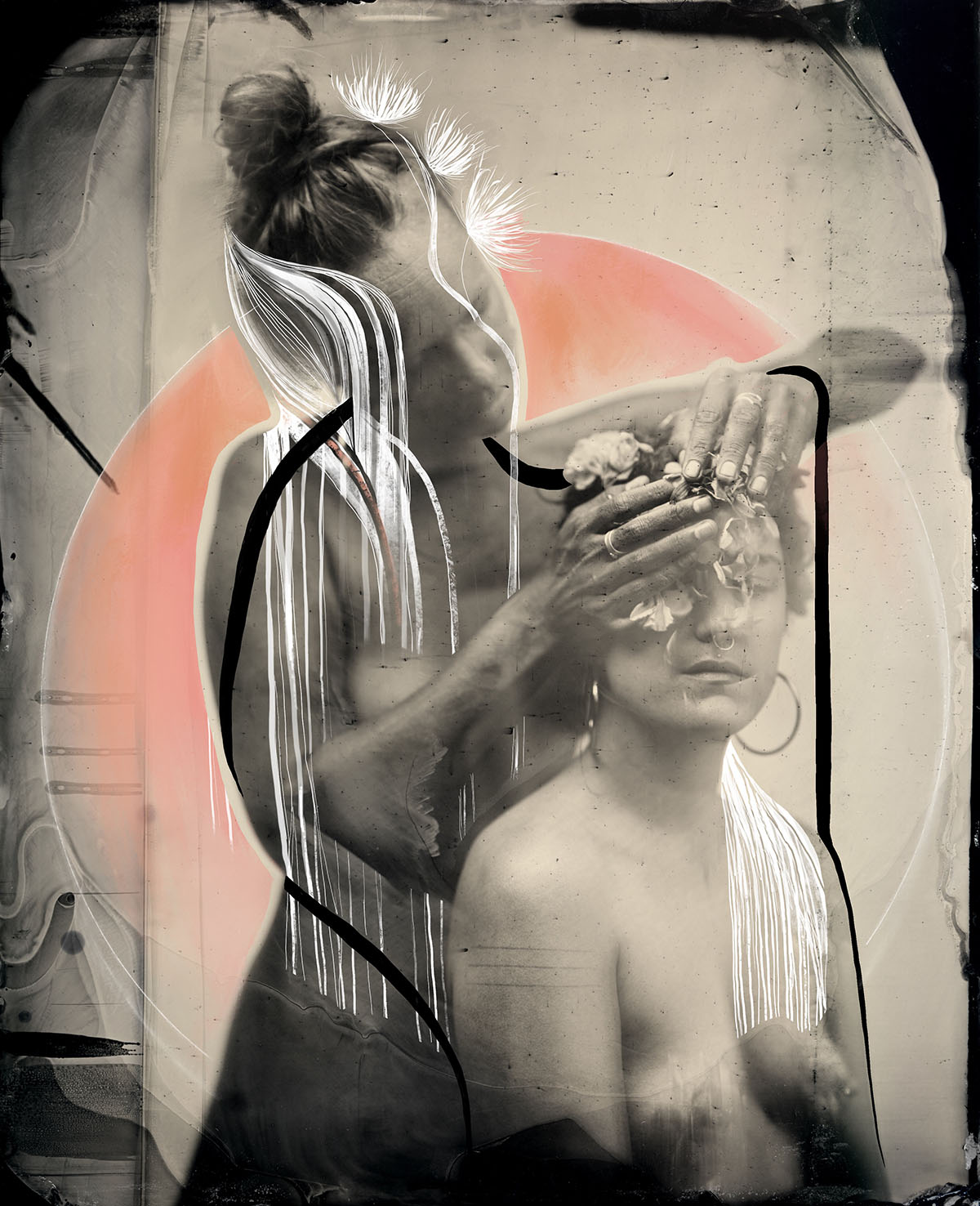
Healing Together, 2020, Scan of 8×10 Tintype, Collaborative Self Portrait, Digital Drawing © Kali Spitzer & Bubzee
Kali Spitzer is a photographer living on the Traditional Unceded Lands of the Tsleil-Waututh, Skxwú7mesh and Musqueam peoples. The work of Kali embraces the stories of contemporary BIPOC, queer and trans bodies, creating representation that is self determined. Kali’s collaborative process is informed by the desire to rewrite the visual histories of indigenous bodies beyond a colonial lens. Kali is Kaska Dena from Daylu (Lower Post, British Columbia) on her father’s. Kali’s father is a survivor of residential schools and Canadian genocide. On her Mother’s side and Jewish from Transylvania, Romania on her mother’s side. Kali’s heritage deeply influences her work as she focuses on cultural revitalization through her art, whether in the medium of photography, ceramics, tanning hides or hunting.
Instagram: kali_spitzer_photography
Her partner, Bubzee, is a mixed media artist who was raised by the river of the Slocan Valley settled on Sinixt land. Bubzee creates magic in many forms. She is a weaver pulling together past, present, future and all of the stories they hold, maiden mother, crone, all the creatures on earth. There is nostalgia unraveling here, something ancient and familiar that stem from her creations like remembering a dream -all the light, balanced by dark -all the life, communing with death. Every story told and echoed from the marrow of bones, carried through and brought to life by every piece that she creates.(Excerpts from the writing of Mariah Curry).
Instagram: bubzeeart
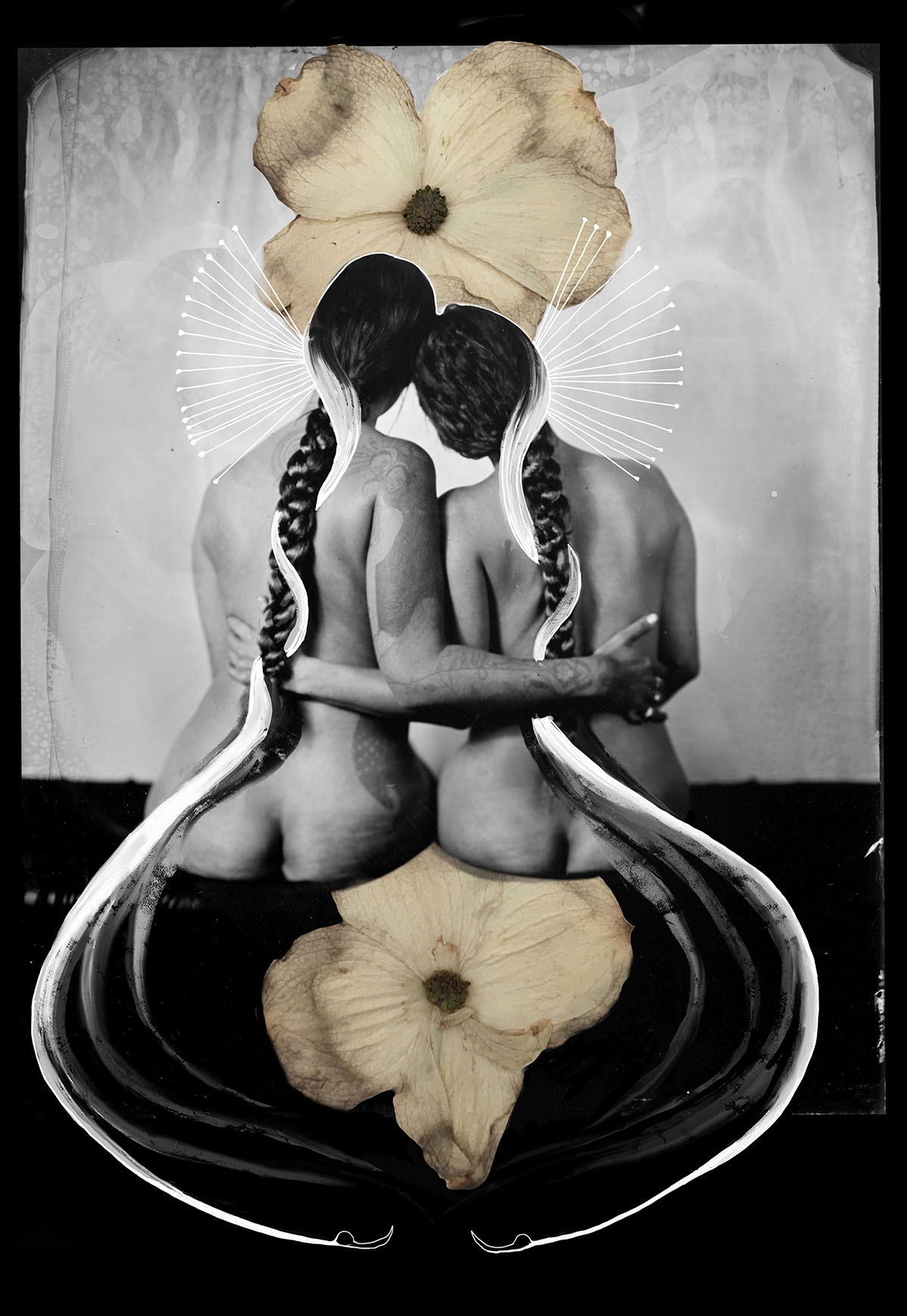
Crossed Connections, 2020, Scan of 8×10 Tintype, Collaborative Self Portrait, Digital Drawing, Pressed Flowers © Kali Spitzer & Bubzee
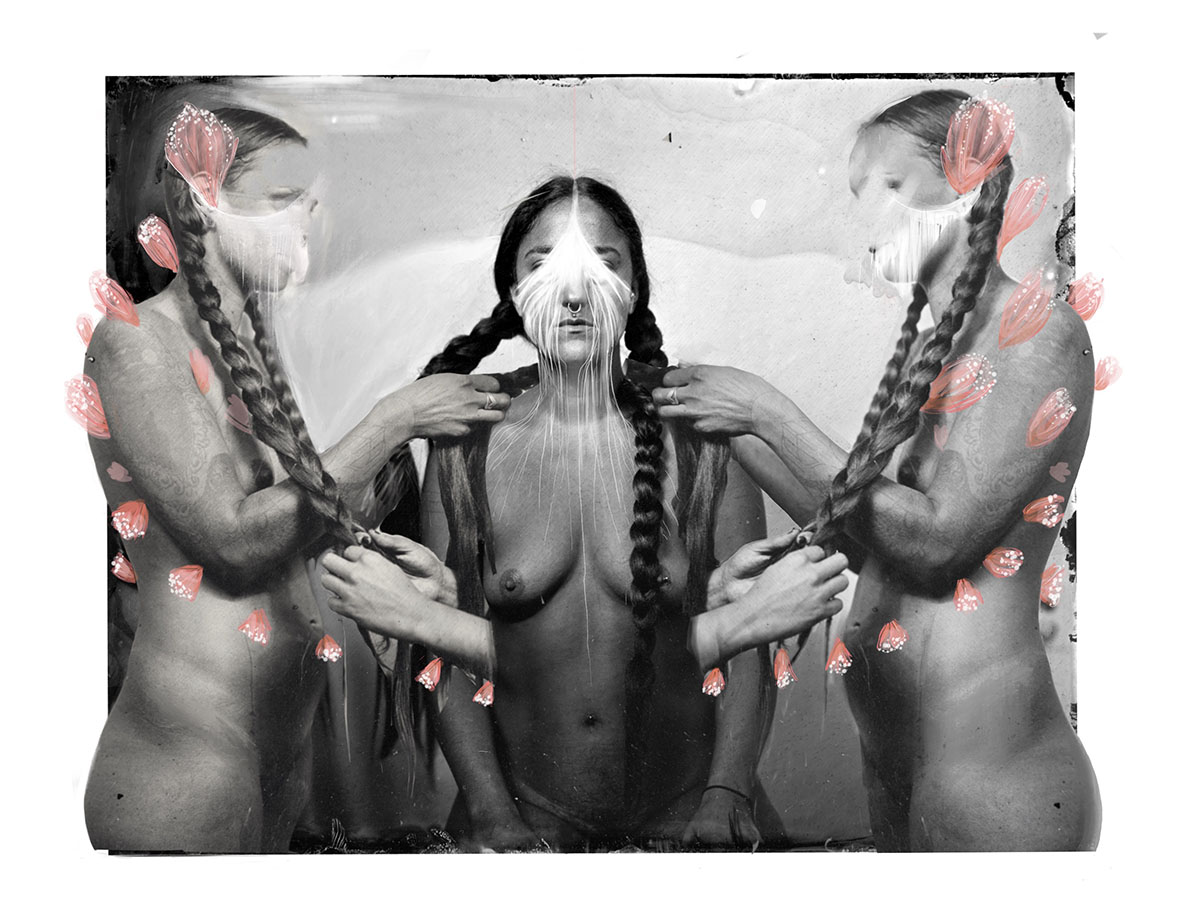
Braiding Wounds, Scan of 8×10 Tintype, Collaborative Self Portrait, Digital Drawing © Kali Spitzer & Bubzee
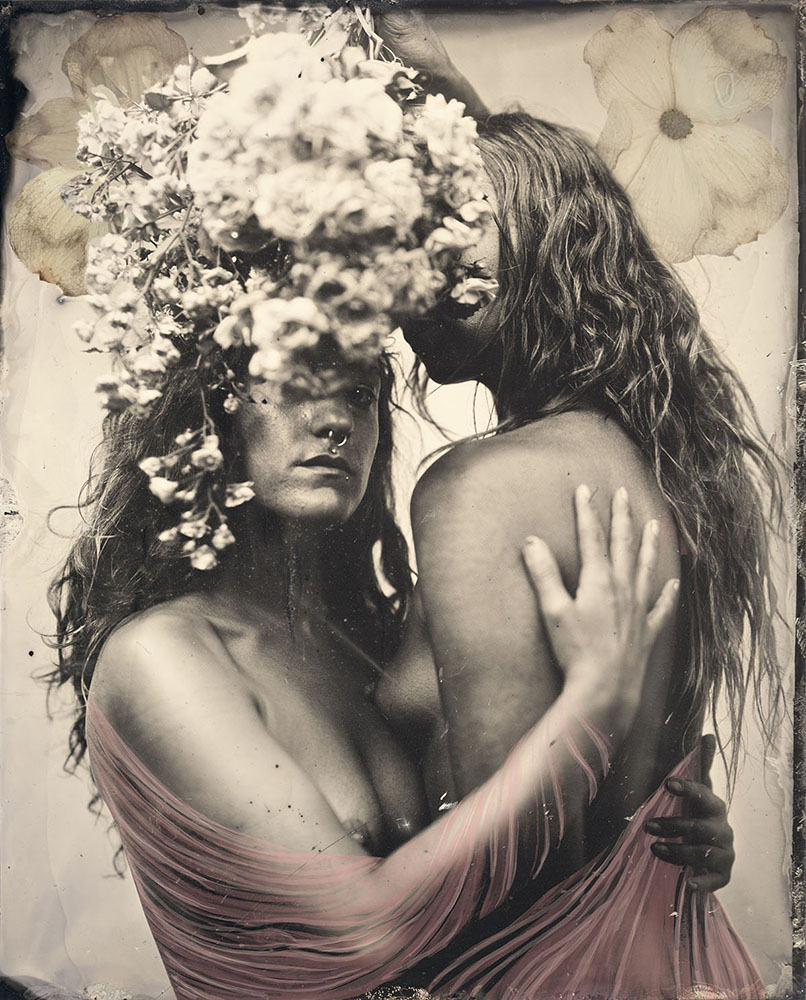
Holding on Through The Grief, Scan of 8×10 Tintype, Collaborative Self Portrait, Digital Drawing © Kali Spitzer & Bubzee
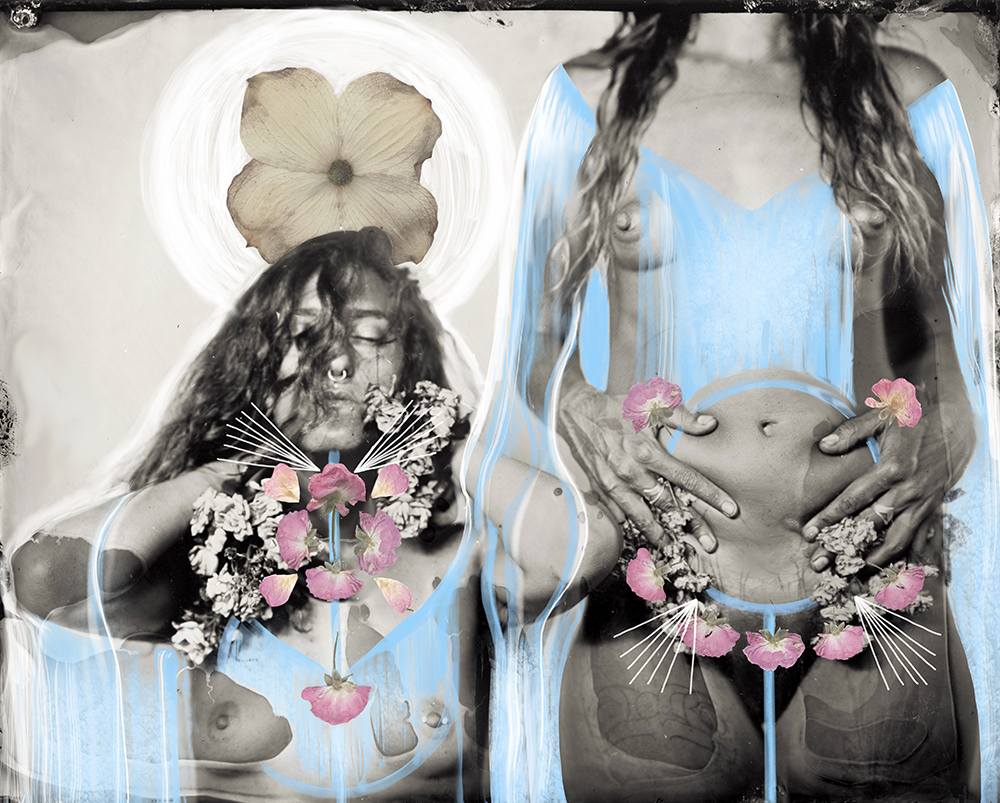
Untitled, Scan of 8×10 Tintype, Collaborative Self Portrait, Digital Drawing © Kali Spitzer & Bubzee
About the Editor:
Donna Garcia’s work illustrate a semiotic dislocation that has been organically reconstructed in a way that gives her subjects a voice in the present moment; something they didn’t have in the past. Her images rise above what they actually are and become empathetic recreations in a fine art narrative. She has an MFA in Photography from Savannah College of Art and Design and her work has been exhibited internationally. She is a 2019 nominee of reGENERATION 4: The Challenges of Photography and the Museum of Tomorrow. Musee de l’Elysee, Lausanne, Switzerland. Emerging Artists to Watch, Fine Art Photography, Nomination (only 250 lens-based emerging artists nominated worldwide).
About the National Center for Civil and Human Rights:
The National Center for Civil and Human Rights is a cultural institution and advocacy organization located in downtown Atlanta, Georgia. Powerful and immersive exhibits tell the story of the American Civil Rights Movement and connect this history to modern struggles for human rights around the world. The National Center for Civil and Human Rights has the distinction of being one of the only places to permanently display the papers and artifacts of Dr. Martin Luther King, Jr. Events, educational programs, and campaign initiatives bring together communities and prominent thought leaders on rights issues. For more information, visit civilandhumanrights.org and equaldignity.org. Also sign up for Campaign for Equal Dignity!
Join the conversation on @ctr4chr (Twitter), @ctr4chr (Facebook), and @ctr4chr (Instagram).
Posts on Lenscratch may not be reproduced without the permission of the Lenscratch staff and the photographer.
Recommended
-
Luther Price: New Utopia and Light Fracture Presented by VSW PressApril 7th, 2024
-
Artists of Türkiye: Sirkhane DarkroomMarch 26th, 2024
-
European Week: Sayuri IchidaMarch 8th, 2024
-
European Week: Steffen DiemerMarch 6th, 2024
-
Rebecca Sexton Larson: The Reluctant CaregiverFebruary 26th, 2024

